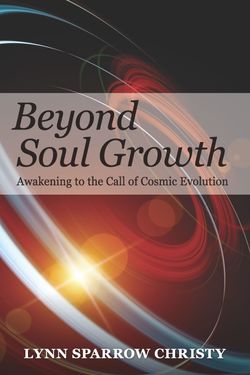Читать книгу Beyond Soul Growth - Lynn Sparrow Christy - Страница 25
На сайте Литреса книга снята с продажи.
Self-Reflective Awareness: Evolutionary Breakthrough
ОглавлениеIt's not just that we are conscious, but that we can be aware of our consciousness; that is the crucial characteristic that puts human beings at the apex of the evolutionary ascent. That ascent, as we have been seeing, involves incremental increase in awareness rather than an all-or-nothing, conscious-or-not-conscious division. Anyone who has ever had a responsive pet or seen a documentary on animal intelligence will attest to the fact that animals are capable of both complex and sophisticated levels of thought and feeling. From elephants who mourn their dead to zoo gorillas who pick the locks of their cages and crows who've learned to use bread as fishing bait, the evidence is abundant that we are not the only ones who feel, think, reason, and problem-solve. Add to that the demonstrated language ability of primates and dolphins, and it would seem that very little that was once considered the sole domain of humans turns out to be uniquely ours. But even those whose close relationship with a loving pet has taught them the full depth of what animals can think and feel would probably agree that your dog or cat does not ponder such questions as “Where did everything come from?” or “What will happen to me when I die?” or “Is this fair?” To be conscious at all is a great evolutionary advance. We share that advancement with the higher forms of animal life. But to be able to reflect on your thoughts is an even higher attainment, one that took more than thirteen billion years to occur and is unique to humanity.
The consensus of evolutionary thought, from purely scientific perspectives, such as that of Carl Sagan when he speaks of “starstuff pondering the stars,” to the more spiritually oriented perspectives of those who see self-conscious awareness as a milestone in spiritual awakening, points to the pivotal significance of this attainment. The German philosopher Hegel zeroed in on the consciousness-elevating potential of reflective thought when he said, “It is thinking that turns the soul, with which the animals are also endowed, into spirit.”42 Similarly, Richard Bucke distinguishes “simple consciousness,” which we share with the more advanced animals, from the “self-consciousness” that is a significant step toward cosmic consciousness. As Bucke puts it, self-consciousness makes us not only conscious of trees, rocks, water, our own limbs and body, but allows us to be conscious of our self “as a distinct entity apart from all the rest of the universe.” “Further,” he goes on to say, “by means of self-consciousness man (who knows as the animal knows) becomes capable of treating his own mental states as objects of consciousness.”43 The theosophical school would concur: “The human level is the point where consciousness has become completely individualized and is capable of turning back upon itself and studying its own inner processes,” wrote L.W. Rogers.44
Evolutionary thinkers point to the Axial Age from 800 to 200 BCE as the time when this enormous breakthrough to self-reflective awareness dawned among the human race. This was a time of great spiritual awakening, where the spiritual traditions of China, India, Persia, Judea, and Greece arose spontaneously. Figures like Plato, Buddha, Lao Tzu, Zarathustra, Confucius, and the major Hebrew prophets were spokesmen of this awakening. Scholars believe that this period of great spiritual awakening was also the time when the ability to be aware of and contemplate our own inner state, including things like our motives, feelings, and thoughts first arose in humans. This reflective self-awareness was the breakthrough of a whole new level of consciousness, one that would make it possible one day for evolution to awaken to itself and which would pave the way for the next-higher development: conscious participation in evolution.
Heretofore, the mysterious impulse within the cosmological and biological worlds to evolve has been operating beneath the surface of awareness. A powerful drive within the very fabric of things has reached onward toward a proliferation of forms and the development of complexity. Now, with the coming of self-reflective consciousness within the human species, evolution has awakened to itself. And we have a choice to make: will we continue to be carried along on the currents of the unconscious evolutionary drive, or will we use our capacity for self-reflective awareness to move into conscious participation in the evolutionary advance? The call is stated eloquently by Barbara Marx Hubbard:
Conscious evolution is the evolution of evolution, from unconscious to conscious choice. While consciousness has been evolving for billions of years, conscious evolution is new. It is part of the trajectory of human evolution, the canvas of choice before us now as we recognize that we have come to possess the powers that we used to attribute to the gods.45
Now, in our own day and time, we are on the brink of the next emerging consciousness, where a fully matured, self-reflective awareness holds the potential to lead us onward to its natural expression: universal or unity consciousness.
